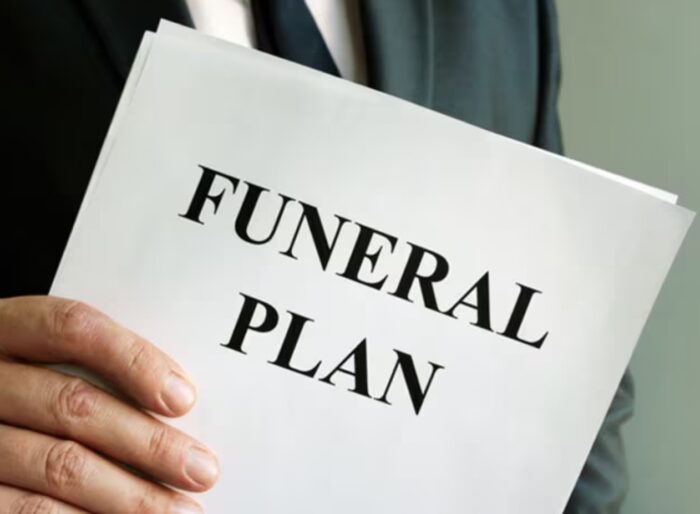
More and more people today are choosing to outline specific instructions for their own funerals and memorial services in their wills, and you may follow suit. It can provide both practical guidance and emotional comfort to your loved ones at a difficult time. It also ensures that your final wishes are clearly stated and less likely to be misinterpreted.
This helpful guide covers key considerations for planning your own funeral service through your will and estate plan. This will walk you through the steps of advance planning so you can craft a meaningful, memorable, and personal funeral that celebrates your life just the way you want.
Specify burial vs. cremation preferences
One of the most fundamental decisions to outline in your will is whether you prefer a traditional burial or cremation. You should specify which option you want and provide any additional related requests.
For burial, you may want to select your preferred cemetery and even reserve a burial plot if allowed. For cremation, provide directions on how and where your ashes should be handled, including scattering, interment, or keeping them in an urn.

Pick your funeral home
Research local funeral homes and select one or two preferred providers to name in your will. Specify contact information, location, and any particular directors you want to conduct the services. You may take your pick based on reputation, family recommendations, or personal experience handling arrangements for a loved one in the past.
By identifying these details in advance, you can ensure that the arrangements will only be handled by professionals you trust and you’re comfortable with. Also, consider listing one to two reputable backup funeral homes just in case your top pick closes business in future years.
Detail any prepaid funeral expenses
If you’ve already invested in prepaid funeral contracts or made other advance payments for services, be sure to include specifics in your will.
For example, you may have pre-purchased a cremation niche, put funds in a payable-on-death funeral trust, or bought burial insurance. Attach any related paperwork, contracts, receipts, or certificates as appendices so your executor has easy access. Outline prepaid details like the location of the burial plot, amount pre-funded, funeral home managing trust, insurance policy numbers, etc.
Accurately documenting any prearrangements eliminates confusion for executors and minimizes the chances of prepaid funds not being accessible when the time comes. This way, you’ll get the most out of the funeral costs.

Outline the ceremony style, location, and more
The memorial ceremony is the cornerstone of any funeral plan. As you write your will, envision what you want the rites to encapsulate and outline key preferences, including but not limited to:
- Ideal location—church, funeral home, graveside, etc.
- Officiant for religious or non-religious service
- Music, including special songs, hymns, performers
- Readings, poems, or passages
- Photo boards, memory tables, or memorial displays
- Flowers and décor styles
You can be as general or specific as you please. Remember that your executor will still make the final arrangements, but this guidance captures your vision.
List eulogy and special remarks
It can be extremely meaningful for close friends or family to deliver a eulogy or share favorite memories. As you write your will, consider listing two to three individuals you’d be honored to have speak at your funeral service.
For each person, include their relation to you and one to two cherished stories or memories. It would mean a lot for them to share should they feel comfortable. Perhaps a sibling recalls childhood mischief, or your best friend tells how you met. Choose lighthearted, uplifting moments that spark nostalgia.
Having just a few personalized recounts or anecdotes woven into eulogies can make your life story more vivid.

Select burial clothing and special personal items
You likely have some favorite clothing and/or personal mementos you may wish to have with you at your burial or cremation. Your will lets you outline these items so they can be obtained by the funeral home. These may include:
- Specific outfits and accessories
- Jewelry or glasses
- Photos
- Letters
- Childhood stuffed animal or favorite blanket
Having these special items with you can bring additional comfort and connection to loved ones.
Provide obituary details
While your executor will need to coordinate the final obituary notice with the funeral home, providing some advance details in your will can be utterly helpful for them. You may choose to include the following:
- Preferred photo for the obituary
- Key biographical details not to be missed
- List of your closest surviving family members
- Notable career, education, and hobby highlights
- Charities you support for memorial donations
- Condolence website you want to be linked

Give guidance on death notifications
Upon your passing, certain important parties will need to be notified. Thus, you can provide guidance to your executor detailing:
- Order in which key family members should be notified
- Contact info for all financial accounts
- Last known contact at your employer
- Veterans or fraternal groups, if applicable
This information helps ensure no critical contacts fall through the cracks during this emotional time.
Share final messages for loved ones
Beyond just funeral details, you may want to include final personalized messages for your closest loved ones in your will. These could be displayed at your funeral, opened shortly after your passing, or read years later during meaningful milestones. These sentimental notes deliver important last words of love, pride, gratitude, hope, and guidance your people can treasure forever.
Appoint an executor you trust
While not technically part of your arrangements (but required by funeral laws) is choosing the right executor. Finding one is critical for ensuring your funeral plans and other final wishes stated in your will are carried out properly. Be sure to select a responsible, organized individual who’s willing and able to manage funeral-related tasks and communicate with your loved ones compassionately in the aftermath of your passing.
Revisit plans every few years
Your preferences, finances, family, and other factors may evolve over your lifetime. Set a reminder to revisit your will every two to three years to ensure no critical details are outdated. Share any changes with your executor and closest family members.

In conclusion
Planning meaningful funeral arrangements in advance lessens the burden on grieving families and helps ensure your life is commemorated as you wish. Use this guide to thoughtfully consider your funeral preferences and capture details in your will or other estate planning documents.
Discuss plans with loved ones as well so they understand and can carry out your directions when the time comes. With some forethought now, you can craft a deeply personal, memorable funeral that provides comfort and closure for all those who love you.











